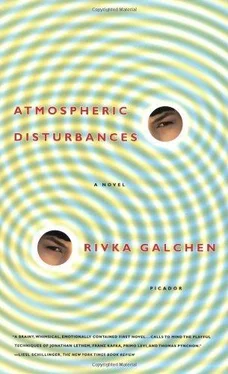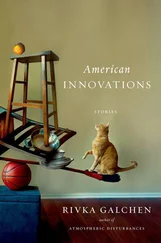I was just kidding. Wrongly believed you understood. Sorry! Ha-ha. Again sorry! I thought you might enjoy this Adorno quote: “The unreality of children’s games gives notice that reality has not yet become real. Unconsciously they rehearse the right life.”
— Leo
So a rather petty and passive-aggressively pretentious move on my part, arguably brought on by the underclass feeling evoked by my own temporary dishevelment and isolation. Or maybe by examining too closely the worn nap of the velvet upholstering of Magda’s desk chair in which I sat. (Her wardrobe so immaculate and yet her furniture so Miss Havisham.) To my credit, after sending that note I then immediately turned off my BlackBerry in order to protect myself from further impulsive communication.
I later lay around in that living room for what seemed like hours, waiting for someone — anyone — to pass through. But no stirrings. I felt that if I couldn’t get into a terrible argument I might have to shred reams of paper into very, very tiny pieces. And I hate that feeling, of having a feeling within me that just vibrates but that has nowhere to go, like sound in a vacuum, never being received. Then I suffer the self-hatred of having allowed that undesired feeling to pile up, so that adds another layer of ugliness.
In the kitchen I found a tin of butter cookies, some with crystallized sugar atop, crystallized in a way that made me feel, by comparison, hazy and unresolved. I ate many of the cookies. Then overfull, and as if half the cookies were still in my esophagus waiting patiently to become part of me, I stared at the ceiling of the kitchen. It was painted in drips and drabbles—“spackled,” I think is the word, the real word, not just Rema’s riff on “speckled”—and the shapes that normally morph and merge out upon the random pattern of such a ceiling did not morph and merge for me as I sat there, though I waited for them to do so, even just playfully, but they didn’t, which made it seem as if I’d become the worst kind of literalist and could no longer be startled past the surface of things. As if I really believed in a world where Tzvi didn’t know about Rema, a world where people, oddly enough, meant just what they said.
Did I think of going home? I thought of going home. Did I go to the coffee shop and stare too much at the Rema-like waitress? I did. After all, in the aftermath of Rema’s disappearance, it had been Tzvi’s work that had directed me to Argentina in the first place. And actually, it was Rema who, in the aftermath of the beautiful ordinariness of our days, had sent me, as a corrective of sorts, to Tzvi Gal-Chen. Now I suspected the circle of referents might be meaningless. Or at least unsolvable, despite my turning round them again and again. Why had I automatically cast Tzvi in the role of heroic leader? Why had I expected him to tell me what to do next? I could see that he was relevant to my mystery, perhaps even central, yes, but that didn’t mean he was necessarily, say, good. Maybe his work was important, even while he himself was not. Or so I tried to reason, through seven coffees, eleven cookies, and two rounds of toast with marmalade. It was imperative, I eventually decided, that I undertake a more thorough study of Tzvi’s work. Regardless of what he had written in his e-mail. His research — I had just skated on the surface of those words, had turned for help prematurely. Surely, even on my own, I could yield more clues than I had so far. And what with the Lola-arranged meteorological labor that lay on my horizon, I needed to grow more fluent with meteorological vocabulary. Tzvi’s abrupt dismissal of me only emphasized the relevance and import of the work, I decided, as I left a sizable tip and wrote xoxoxo on the merchant receipt.
With impressive resolve, I headed back to Magda’s home, to Tzvi’s research. I really was ready to go straight to work.
But outside Magda’s home I saw a woman. Without urgency, ascending like a lava lamp bubble, a tamped thought: she looks just like Rema . Far more so than even the waitress. This woman was just sitting on the front step, her feet turned inward, elbows on knees, chin in hands, fringe of cornsilk blonde hair hanging over dove dark eyes. Next to her a dog. But not the small nervous dog from New York. Instead Killer, the magnified version of that orphaned dog.
I stood dead still, considered turning and never returning. Why was I instinctually afraid of her? Why had I automatically cast her into the simple role of antagonist? If my casting was so off to begin with, then my hopeless forecasting, wasn’t that wrong too? She looked so forlorn and pretty.
The simulacrum — not aware of me — then moved her arms. She crossed them over and held on to opposite elbows as if she were cold. This flattened out her upper arm — pressing it against her side — made her arm look larger and also exaggerated its shape, distorting it, funhouse mirroring a form that I love, an ideal form, a just-so curve. This woman was definitely not as pretty as my Rema, not, at least, with her arm all flattened out that way, looking chubby. And that tincture of unattractiveness — well, it made the simulacrum seem to me suddenly harmless.
I stepped forward, into the woman’s view, and said, with an admirable affect of nonchalance, “Isn’t that the wrong puppy?”
Before I knew anything, she was holding on to me, and had her arms around me at the shoulders, and her cheek against my cheek, and there was that smell of grass in her hair, which really made me see in blurred triplicate, and then she was kissing my face, the manys of her, and to be perfectly honest this was all reminding me far too acutely of Rema (I felt her teeth on my cheek), of my Rema of the pecans and tea topiaries and foreign newspapers, and frankly it was all making me really too sad. I didn’t like feeling sad, only perverse people like to feel sad — I hadn’t been feeling sad, I had put that off for more important emotions — I wanted to push that woman off of me but couldn’t because I felt like I’d lost control over my limbs, as if they were someone else’s.
She was kissing me; then when I opened my eyes a moment I saw, in a sideways glance, Magda. It was strange to be seen kissing; it was a very not-me situation in which to be.
“Rema!” came Magda’s voice. “Phone call!”
Not a single muscle of the simulacrum responded to the sound of Magda’s voice.
“I’m coming,” I called out, willfully misunderstanding whom Magda was addressing.
“I was having so much fear,” the simulacrum said, kissing my eyelids — and I couldn’t help but think about the eyelid kissing, and how this is a thing Rema always liked to do, and though I understand that eyelid kissing is a fairly standard part of any amatory repertoire, I remember how it really needled me at the beginning, needled me for being a sort of learned behavior, which therefore pointed to that whole world that was Rema before I knew her, and pointed to all those people who were not me who had gone into the creation of her as she was, and — well, in that way she was like some alien sedentary rock formation, some meteor fallen to my planet, and it seemed a violation of me to have no choice but to love some charred castaway, with all its strata — I guess I am very jealous and possessive — I just found it very difficult those moments, like eyelid kissing, when I couldn’t help but perceive her duplicity, her triplicity. She took firm hold of my wrist. “I started by writing down a long list of mean things to say to you, but—”
“It’s rude to Magda—”
“And I almost thought this was just an ordinary fight we were having, and I went through in my mind all the people who are more nice to me than you are, because many people are very nice to me, but then—”
Читать дальше
Конец ознакомительного отрывка
Купить книгу












